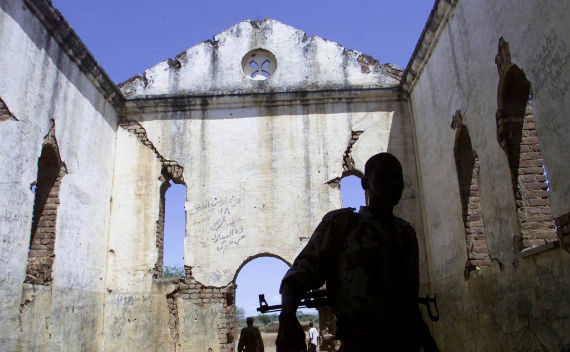Sudan’s Christians Vote for Independence
More on:

The reports of millions of southern Sudanese voting in the referendum on independence are a reminder that democracy and self-rule are not a luxury that only the rich can afford. While there has been violence, some of it apparently the fault of northern Sudan, the overall picture is remarkably positive.
The BBC has supplied a useful but oddly inadequate set of maps showing that Sudan is by most standards two nations already. For while the BBC maps show ethnicity and a variety of other differences between north and south, curiously they avoid the subject of religion. Yet it is religion as much as any other factor that divides the Muslim Arab north from the Christian and animist south.
I visited southern Sudan almost exactly ten years ago, in January 2001, and it was the religious divide that concerned most people with whom I spoke. Simply put, they were Christian and did not believe they would ever truly be equal citizens under an Arab regime in Khartoum. In reaching that conclusion they certainly had modern Sudanese history on their side. Moreover, Sudan borders on Egypt and those who were educated and politically active were aware that Egypt had a Christian minority that was always facing one sort of trouble or another. Everyone in southern Sudan was aware of the suffering the governments in the north had inflicted on the south, and most wanted to break off—as the predictions of an over 90 percent vote for independence suggest.
There are many ways of seeing the independence vote, but surely one is the failure here—again—of an Arab government to make it possible for Christians to live in peace and security. In fact the only Christian community in the Middle East that appears to be growing is that in Israel. The last few weeks have seen violence against Christians in Egypt and Iraq, and the rise of Hezbollah in Lebanon has cornered the Maronite community there in many ways as well. Here the southern Sudanese are lucky, for the geography of those other countries makes thoughts of independence for their Christian minorities impossible. Christians in most of the Middle East will have to continue their difficult struggle for civil equality, personal safety, political power, and full religious freedom.
More on:
 Online Store
Online Store
